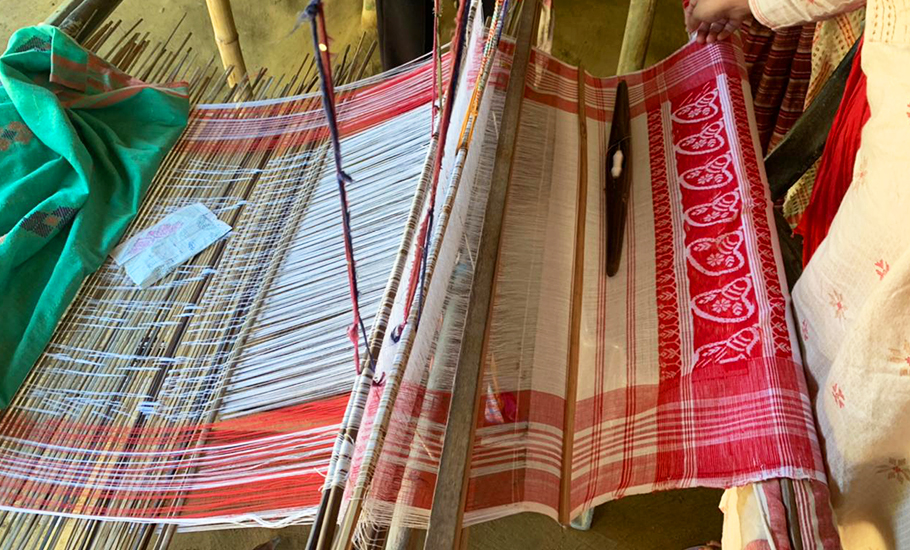
Guwahati: Prime Minister Narendra Modi, during his recent visit to Nalbari, Assam declares himself as the brand ambassador of Assam's traditional weave - "gamusa". Despite the Prime Minister's assertion, the traditional gamusa woven by indigenous craftsmen and women faces a grave threat with the rise of powerloom machines.
Talking to Business North East, Handloom & Textiles Director Paragmoni Mahanta made a pitch to "spread awareness of handwoven gamusas" and embrace of handwoven textiles in a bid to safeguard the age-old craft of gamusa-making. Despite gamusas being indigenous to the state and possessing a Geographical Indication (GI) tag, the prevalence of powerloom variants continues to rise, Mahanta has noted. "The export count of handwoven gamusas remains disproportionately low", he said, adding that there is an urgent need for government intervention to curb the influx of powerloom gamusas into the state.
He has also suggested implementation of "regulatory measures" against proliferation of machine-woven gamusas.
During the conversation, the Director also stressed the importance of discerning between handwoven and powerloom variants, and cited the former's cultural significance and economic impact on indigenous weavers.
"The widespread adoption of handwoven gamusas would not only serve to preserve the state's cultural heritage but also provide a significant boost to the local economy by supporting traditional weavers", he asserted, adding that the public should actively opt for handwoven gamusas over their powerloom counterparts.
Mahanta also highlighted a significant obstacle hindering efforts to differentiate between handwoven and powerloom gamusas - the absence of adequate testing facilities. "While a testing lab in Kolkata exists, the process is marred by lengthy delays, with results often inconclusive due to insufficient equipment. This challenge impedes the certification of authentic handcrafted gamusas, exacerbating the proliferation of powerloom imports", he added.
The rise of powerloom gamusas poses a formidable challenge to the age-old tradition deeply rooted in Assamese culture. Despite the efforts to promote handwoven pride, the allure of mass-produced alternatives continues to grow. Moreover, the influx of powerloom counterparts threatens to dilute their authenticity.
"By prioritizing the purchase of handcrafted gamusas, consumers can play a pivotal role in sustaining the livelihoods of indigenous weavers and preserving the cultural integrity of this cherished tradition", he added further.
ALSO READ: Revolutionizing Clothing Brand Startups: Skill Tech Company Bridges Gap in Screen Printing Market